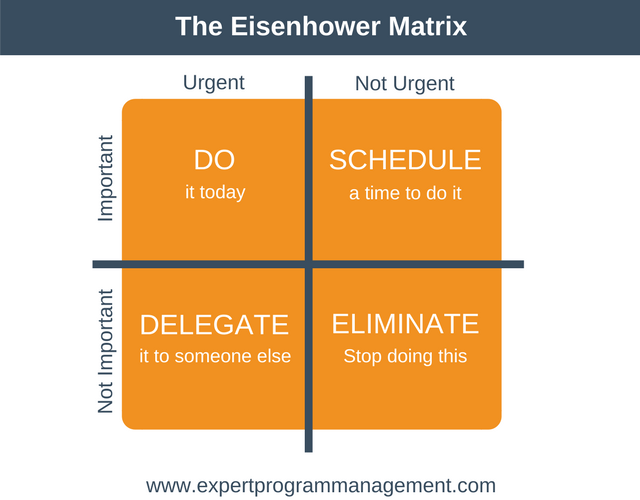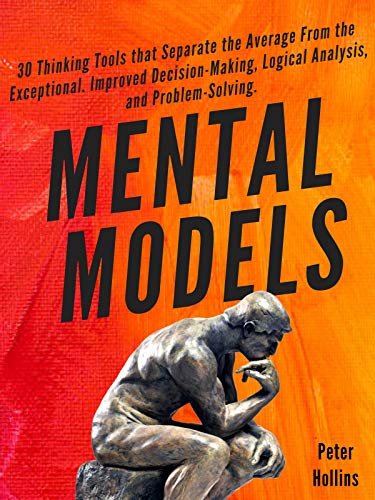This post is part of the 📖 Mental Models series.
Today, I am reading the first mental model Address “Important”; Ignore “Urgent” from Decision-Making for Speed and Context chapter of the book Mental Models written by Author Peter Hollins.
Mental Models are like giving a treasure map to someone lost in the woods. They provide instant understanding, context, and most importantly, a path to the end destination. Now imagine having such a map for all problems and decisions in your life.
In this book Mental Models, author Peter Hollins discuss 30 mental models that billionaires/CEOs, Olympic athletes, and scientists use to think differently and avoid mistakes.
Battle information overwhelm, focus on what really matters, and make complex decisions with speed and confidence.
Yesterday, I started reading a new book Mental Models and left in the middle of the chapter Decision-Making for Speed and Context.
Decision-Making for Speed and Context
Mental Model #1:
Address “Important”; Ignore “Urgent”
We spend far too much time on urgent tasks when we should be focusing on important tasks.
Important task:
These contribute directly to our short-term or long-term goals. They are imperative to our work, responsibilities, or lives.
They cannot be skipped and should be prioritized. They may not need to be done immediately and thus don’t appear to be important.
This makes it easy to fall into the trap of ignoring the important for the urgent. But they are what genuinely impact your various bottom lines, and serious negative repercussions would follow from skipping them.
Urgent task:
These simply demand immediacy and speed and usually come from other people. Of course, this naturally creates a reaction on your end that can make us forget what’s important.
They can overlap with an important task, but they can also just demand your immediate attention without deserving it.
These are usually smaller and easier to complete, so often, we turn to them out of procrastination. It allows us to feel quasi-productive even though we’ve ignored what we really need to be doing.
Many urgent tasks can be delayed, delegated, or flat-out ignored.
The author gives a quick example:
If you are an author under a tight deadline, an important task for you would be to continue writing your book.
An urgent task would be dealing with that annoying “check engine” light that keeps flickering on and off in your car.
Eisenhower’s matrix is easy for anyone to employ and goes a long way toward improving efficiency and accomplishment.

Urgent: Do.
Objects in the “do” quadrant are things that absolutely need to be done posthaste.
These are the tasks you should do NOW.
Non-Urgent: Plan
The world isn’t going to collapse if they’re not done today; they’re not on a strict deadline to be completed. Still, they have to be done at some point, usually relatively soon, so they need to be scheduled.
These are the tasks you should do SCHEDULE and Plan them for the future.
Urgent: Delegate
There is no point of importance for you to be involved in this daily minutia, and thus, you must eliminate it from your schedule through delegation.
Not Urgent: Eliminate
Take them off your plate entirely.
Key Takeaways
Many urgent tasks can be delayed, delegated, or flat-out ignored.
Important tasks truly impact your various bottom lines, and serious negative repercussions would follow from skipping them.
Whatever things most impact every other thing in our lives or work is the most important.
Only keep items that are important to the bottom-line success of your project or life.
Summary
- Identify and address important tasks, ignore urgent tasks. Delegate important but non-urgent task and delete not important and not urgent tasks.
That’s it for today. Tomorrow, we will read the second mental model Visualize All the Dominoes, use to make decisions that are as informed as possible.
Address “Important”; Ignore “Urgent”
Identify and address important tasks, ignore urgent tasks. Delegate important but non-urgent task and delete not important and not urgent tasks.
Author(s): Peter Hollins
Part 2 of 29 in the 📖 Mental Models book series.
Mental Models - Day 1 | Mental Models - Day 3
